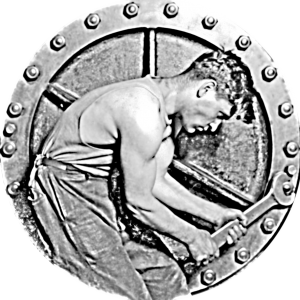My Lover Works All The Time

If you love a ‘workaholic’ you’ll need to think about a few things. An addiction to ‘work’ is like an addiction to eating or sex, we all need to have it but in the right proportions. Not enough and there is a problem. Excessive amounts and there is also a problem.
Workaholics on the surface look like they’re ‘chasing’ something they want or need. It’s usually money, prestige, position, something that represents success. Definitely more than what is needed to survive. They tend to be ambitious people, driven by an internal need to succeed, to win.
A deeper psychological look reveals that the workaholic is ‘running away’ from something. In most instances they are running away from something inside, some thought or feeling they have about themselves. If they stop too long, relax too much, sit still long enough, what they are running away from will catch up with them, and it won’t feel good.
This helps account for the ‘hyper’ quality of the average workaholic. They are always busy. Going somewhere, doing something, beating the clock, their perpetual effort is felt by all who interact with them.
Once I saw a workaholic patient who came into my office for a first appointment and quickly excused himself as he answered his cellphone and paced in my office talking business on the phone. I sat and watched. It went on for a while. When the phone call was over he continued to pace.
The focus of our work was obviously on developing his ability to relax, and receive and express the thoughts and feelings he had inside that resulted in his need for treatment. As time passed he was able to sit down and pay closer attention to what was happening inside of him probably for the first time in his adult life.
When you are in love with a workaholic, a certain ‘loneliness’ will emerge because the materials and/or titles you have been given cannot substitute for the intimacy and love you are missing. After a while you’ll probably feel frustrated and struggle with your needs for love. Finding a way to communicate your unhappiness will be difficult at first.
Because your unhappiness is similar to what your workaholic lover is running away from and not acknowledging in himself or herself, what you want to talk about your workaholic won’t easily tolerate. It will put him or her in touch with what he or she has been running away from for some time.
The best advice I can give you is to try in various ways to get his or her attention and test the waters of tolerance. You won’t know ahead of time whether your workaholic lover can tolerate the ‘feelings’ you are trying to communicate. If you are successful in penetrating the ‘wall of work’ your lover has probably realized that he or she is about to lose too much by losing you.
If change is possible without the assistance of a psychotherapist, go for it. If not, a bit of couple’s treatment to strengthen and practice the emotional communication in your relationship and extend the level of tolerance, will come in handy. Read this post before you start, “Know This Before Starting Couples Therapy.”
If you are unsuccessful in penetrating the wall of work, you have a decision to make. Can you tolerate the relationship as is? This means no change. If the answer is yes, you’ll practice adapting to your workaholic’s way of life. Find things to do. Things that will nurture and preoccupy you during the ‘absences.’ Getting good at distracting yourself with something meaningful is essentially what is needed to be in love with a workaholic.
If the answer is no, you cannot tolerate or adapt to a workaholic lifestyle, you still have one last possibility. Remember, when someone loves you, and you leave that person after asking for something you need, he or she will think about what you’ve said, feel your absence, and the love they had/have for you.
If there’s enough there to confuse and scare, you’ll be getting a call and request for continued ‘negotiation’ about the relationship. Make sure you stand up for yourself, communicate your own needs, and ask for proof.
Comments? welcome. Dr. Tom Jordan
